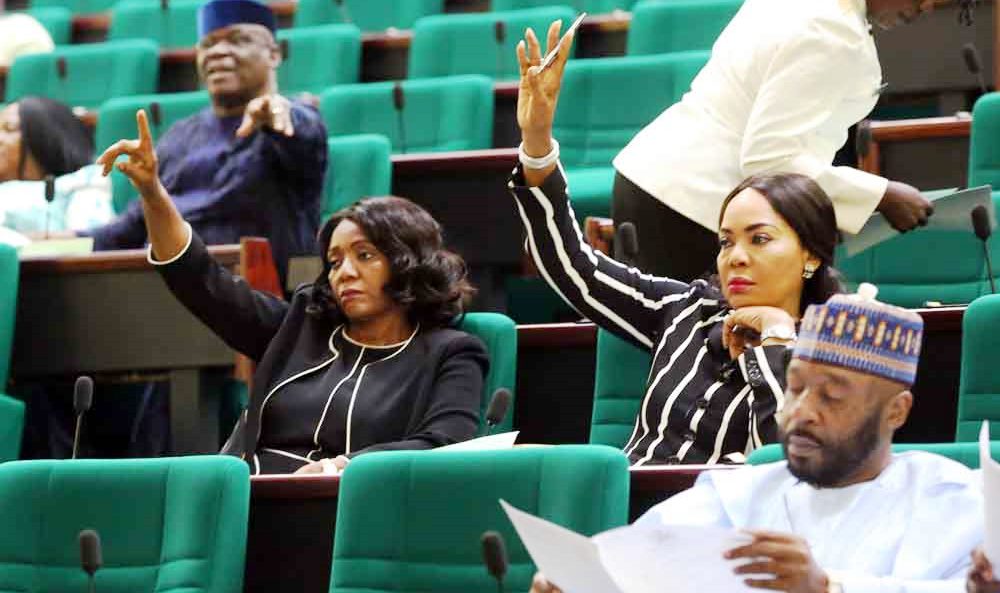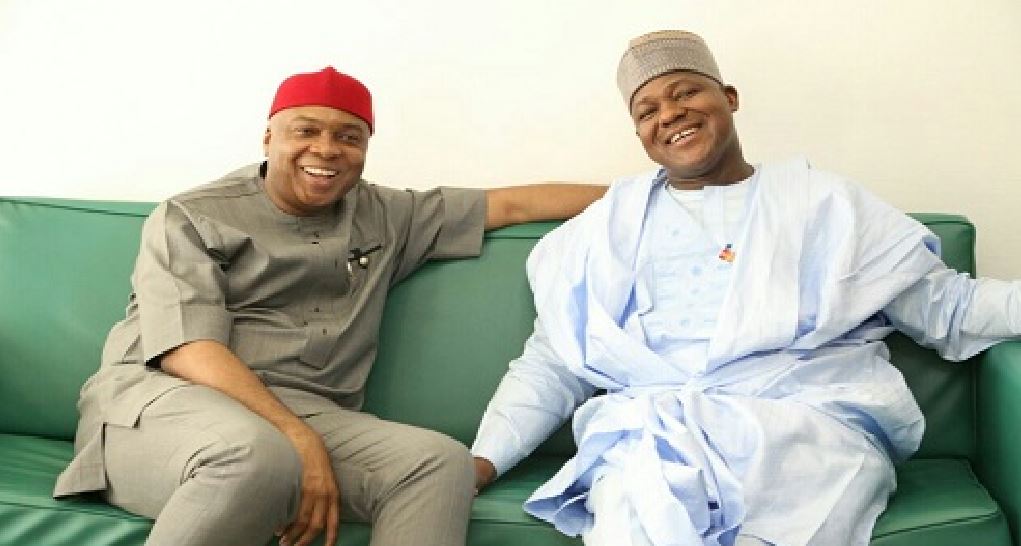The Senate on Tuesday adopted the N1.64 trillion proposed by the Executive for new borrowing to fund this year’s budget deficit.
The upper chamber also approved the proposed N500 billion special social intervention funds.
The adoptions were parts of the 2019-2021 Medium Term Expenditure Framework (MTEF) and Fiscal Strategy Paper (FSP) passed Tuesday by the upper chamber.
President Muhammadu Buhari sent the MTEF/FSP to the National Assembly on November 6, last year, for consideration and approval.
The passage of the MTEF/FSP came as the Senate is set to receive the report of the 2019 budget from its Appropriation Committee.
The Senate adopted all the critical projections in the MTEF/FSP as proposed by the Executive.
The MTEF/FSP, an annual rolling three year-expenditure plan, sets out the medium-term expenditure priorities and provides the basis for the preparation of the annual national budget.
The Senate Committee on Finance which considered the MTEF/FSP presented its recommendations for adoption by the Senate in plenary.
Apart from the adoption of N1.64 trillion for new borrowing to fund the budget deficit, the Senate advised agencies to explore ways of generating additional revenues for the government to bring down the fiscal deficit.
It said that the Federal Government should harness the full optimal potential of the Ministry of Mines and Steel Development in terms of revenue generation to minimise the level of new borrowing.
The committee also said that the Federal Government should consider reducing waivers and exemptions. Besides, it should ensure that the Nigerian Customs Service (NCS) personnel were at all oil terminals for accountability.
The Federal Inland Revenue Service (FIRS), it said, should consider increasing tax on luxury goods and services.
On the N500 billion special social intervention funds, the Senate asked for the cooperation of committees in the National Assembly and other MDAs in ensuring that the funds are judiciously utilised to provide tangible impact on Nigerians.
The Senate retained the oil output of 2.3 million barrels per day, oil price benchmark of $60 per barrel, exchange rate of N305/$1, GDP growth rate of 3.0 per cent and inflation growth rate of 9.98 per cent.
Other Executive proposals for 2019 also adopted by the Senate include: proposed expenditure of N8.83 trillion, FGN retained revenue N7.92 trillion, fiscal deficit N1.86 trillion, new borrowings N1.65 trillion, statutory transfers N492.4 billion, debt service N2.14 trillion, Sinking Fund N120 billion, total recurrent (non-debt) N4.72trillion, personnel costs (MDAs) N2.29 trillion, capital expenditure N2.86 trillion, Special Intervention N500 billion.
The committee said that crude oil production output stood at 2.0 million barrels as of December 2018.
According to the committee, the 2.3 million barrels daily target is achievable “due to the continuous efforts of all stakeholders in checkmating the issues of oil facilities vandalism and other vices associated with such regard”.
The committee, which recommended an exchange rate of N305/$1, asked the Central Bank of Nigeria (CBN) “to continue adopting strategies that will aid the strengthening of the naira and bridging the gap between the official and parallel market rate of the foreign exchange.”
On the 2019 Budget, Senate President Bukola Saraki, gave the Appropriations Committee till tomorrow to submit the 2019 budget report.
The Vice Chairman of the Appropriations Committee, Sunny Ogbuoji, told the Senate that only 24 of 61 sub-committees had submitted their reports.
Saraki insisted that the budget report must be presented tomorrow ahead of the April 16 approval of the money bill.
The Senate President warned that the Appropriations Committee would be forced to use Executive submissions if the sub-committees fail to submit their reports today.
Saraki said: “It is unfortunate that only 24 committees have submitted their reports. Last week, we all took a decision here that we were not going to waiver on our position.
“Our position is very clear: that all committees should submit (their budget reports). And those that don’t submit, the Appropriations Committee should use the Executive submission.
“That position is still where we are. And I want to appeal to all our committees that you really have just till tomorrow (Wednesday) to make sure that your reports get to the Appropriations Committee because Thursday, you must lay this report.
“Vice Chairman of Appropriations Committee, if you don’t get report from our committees by tomorrow (Wednesday), then you just use the submission of the Executive. But come Thursday, you must lay that report.”
President Buhari presented the N8.83 trillion budget proposal to a joint session of the National Assembly on December 19, 2018.




